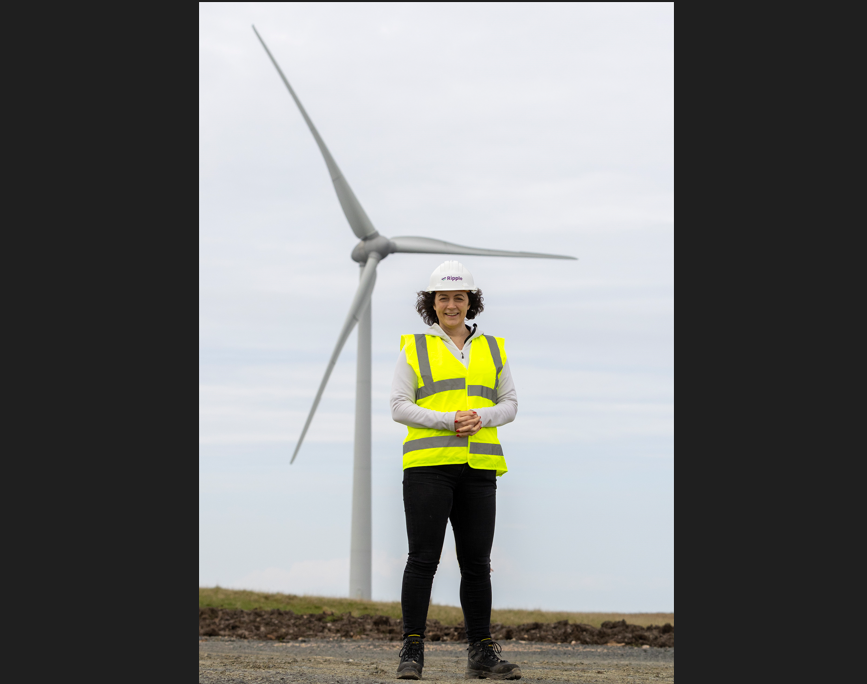As the new Labour Government aims to transform Britain into a “clean energy superpower,” there are increasing calls to eliminate financial penalties for individuals who own their renewable energy sources. With the Government’s commitment to speeding up the transition to renewable energy, attention is turning to energy cooperatives, an alternative to rooftop solar panels for those unable to install them, such as renters and those living in flats.
Energy cooperatives offer people a chance to invest in large-scale wind farms and solar parks, providing them with green, low-cost electricity through the national grid. Ripple Energy, a pioneer of this model in Britain, is leading the charge by launching its “Own Your Power” campaign to make joining energy cooperatives more accessible.
Energy Cooperatives: A Growing Trend
Rooftop solar panels have long been the most common way for households and businesses to access renewable energy. However, for many, this is not an option. Energy cooperatives provide an alternative, allowing people to purchase small shares in wind farms or solar parks. In return, they receive the clean energy generated by these projects, delivered to their property via the national grid and their energy supplier.
Ripple Energy has been at the forefront of this movement in Britain, providing a pathway for people to take a personal stake in renewable energy. Founder and CEO Sarah Merrick believes energy cooperatives are a vital tool in the nation’s energy transition.
“We’re at a critical point in the UK’s energy transition, with the new Government pledging to speed up renewables deployment and the biggest expansion in community energy in British history,” said Merrick. “At Ripple, we absolutely believe that’s possible, but only by going big on people-owned power.”
Merrick is part of the UK Government’s Onshore Wind Taskforce, working to accelerate the rollout of renewable energy projects. She argues that energy cooperatives can democratise energy ownership while protecting individuals from energy price fluctuations and geopolitical risks.
Removing Financial Barriers
While the Government has expressed support for community energy projects, more needs to be done to make renewable energy ownership accessible. Ripple Energy is calling for three key financial reforms to make it easier for people to join energy cooperatives.
Firstly, Ripple is advocating for an exemption from green energy levies for those who own shares in renewable energy projects. Green energy levies, added to electricity bills, are intended to support renewable energy initiatives. However, Ripple argues that people who already own shares in wind farms or solar parks should not be required to pay these levies on the energy supplied to them from their projects.
Currently, an exemption exists but only applies to those using unlicensed energy suppliers or private wire networks. Ripple wants this exemption simplified, enabling all cooperative members to benefit.
Secondly, the company is calling for tax relief on savings made through cooperative energy ownership. At present, these savings are treated as interest income and are subject to tax, reducing the financial benefits for many members. Ripple argues that cooperative energy owners should receive the same tax relief as those with home solar panels.
Finally, Ripple is pushing for financial support for low-income households to help them buy shares in wind farms or solar parks. While home solar panels can be out of reach for many, cooperative energy offers an affordable alternative. Ripple believes that with the right financial backing, renewable energy ownership could become accessible to all.
Energy Cooperatives in Action
Ripple’s model allows households to buy a small share of a wind turbine, which is enough to meet their electricity needs for up to 30 years. These cooperatives bring together thousands of people from across the country, united in their goal to combat climate change while securing lower energy bills.
Ripple has already seen success, launching three projects worth £80 million and generating over 60MW of power. These projects are owned by 15,000 households across Britain, and they include the two largest cooperative share raises in UK history.
The company’s fourth project, a 60MW onshore wind farm with 14 turbines in the Scottish Borders, is currently in progress. Ripple is also exploring opportunities in the offshore wind sector, aiming to extend the benefits of cooperative energy to even more people.
Merrick is optimistic about the future of energy cooperatives in Britain. “Energy cooperatives are communities in their own right, and by implementing these three simple asks, the true potential of community energy in Britain can be realised with nobody left behind or penalised for their contribution,” she said.
As the UK pushes ahead with its clean energy goals, energy cooperatives offer a promising solution for individuals seeking to reduce their carbon footprint and take ownership of their energy supply. With growing support from the Government and key industry players like Ripple, the future of community energy in Britain looks bright.
For more information, please visit www.rippleenergy.com.


